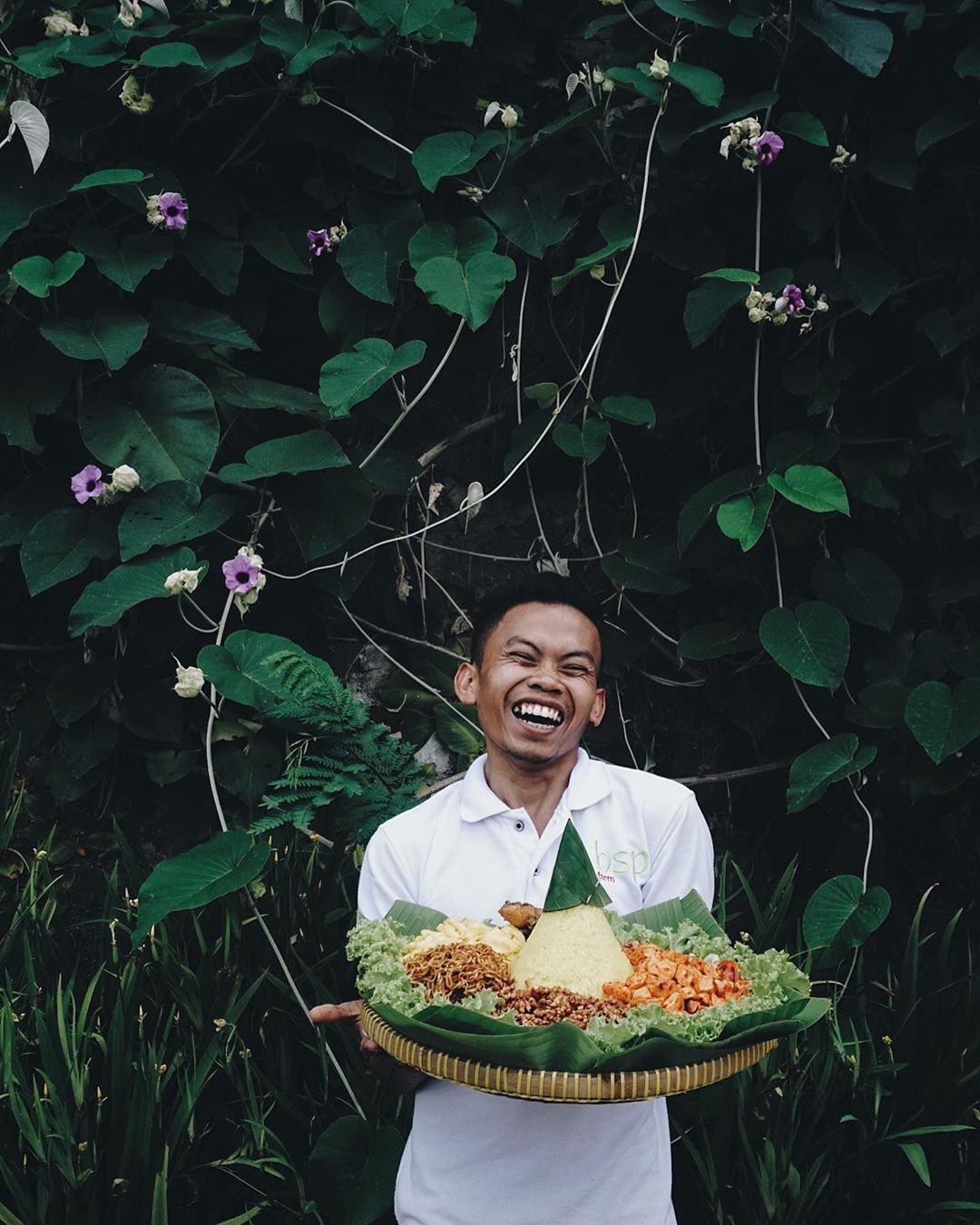Six Organic Farms & Farmstays in Indonesia
Disclosure: Bear in mind that some of the links in this post are affiliate links and if you go through them to make a purchase we will earn a commission at no additional cost to you. We chose these companies / hotels because of their quality and not because of the commission we receive from your purchases.
When we travel, a huge part of what we look forward to in a new destination is the culinary explosion on our palates! So much of our culture is convened around a celebration of our taste buds and the offerings take the form of regional delicacies and flavours. A visit to an organic farm adds even more layers to that experience, not only do you get to taste local, seasonal, home-grown produce but you get to learn all about its origins, cultivation and other uses.
Local produce is especially important, as the ongoing pandemic has underscored. While our global supply chains make the exotic available at our fingertips, when there is a disruption in this vast network, sudden food shortages have the capacity to cause great damage. Local produce ensures a consistent sense of food security and is highly beneficial to local economies too. In many parts of the world, economies are still primarily agrarian and without bolstering support for them within national borders, they are likely to get hit hard whenever a crisis in the global network emerges. Nature too reaps the rewards of us consuming what is locally available - lesser food miles, an impetus to local availability and a boost to organic methods of farming all help to preserve the delicate balance.
As the pandemic progresses and the end is uncertain, we can see that a whole lot of these organic farms are being hit hard. Their revenue is often a mix of guided tours for tourists and the sale of produce. With both of these income streams compromised for the foreseeable future, it is uncertain whether a lot of these small, sustainable businesses will survive. However, it is possible for the global traveler community to join hands and help small sustainable businesses stay afloat.
We've compiled a list of organic farms in Indonesia that have a positive impact on their communities - they could use your help during this pandemic!
BSP Farm is a certified organic farm at the foothills of Mount Salak in Java. Just an hour and a half's drive from Jakarta, you will be thrown into a natural world teeming with vitality and beauty. You can enjoy a tour of their farm by their friendly local staff or dive deep into the experience and stay here for a few days, breathing in the crisp mountain air and eating food that is growing directly in front of you! They work with local farmers and their wives and do their best to create a visit that will be informative and wholesome.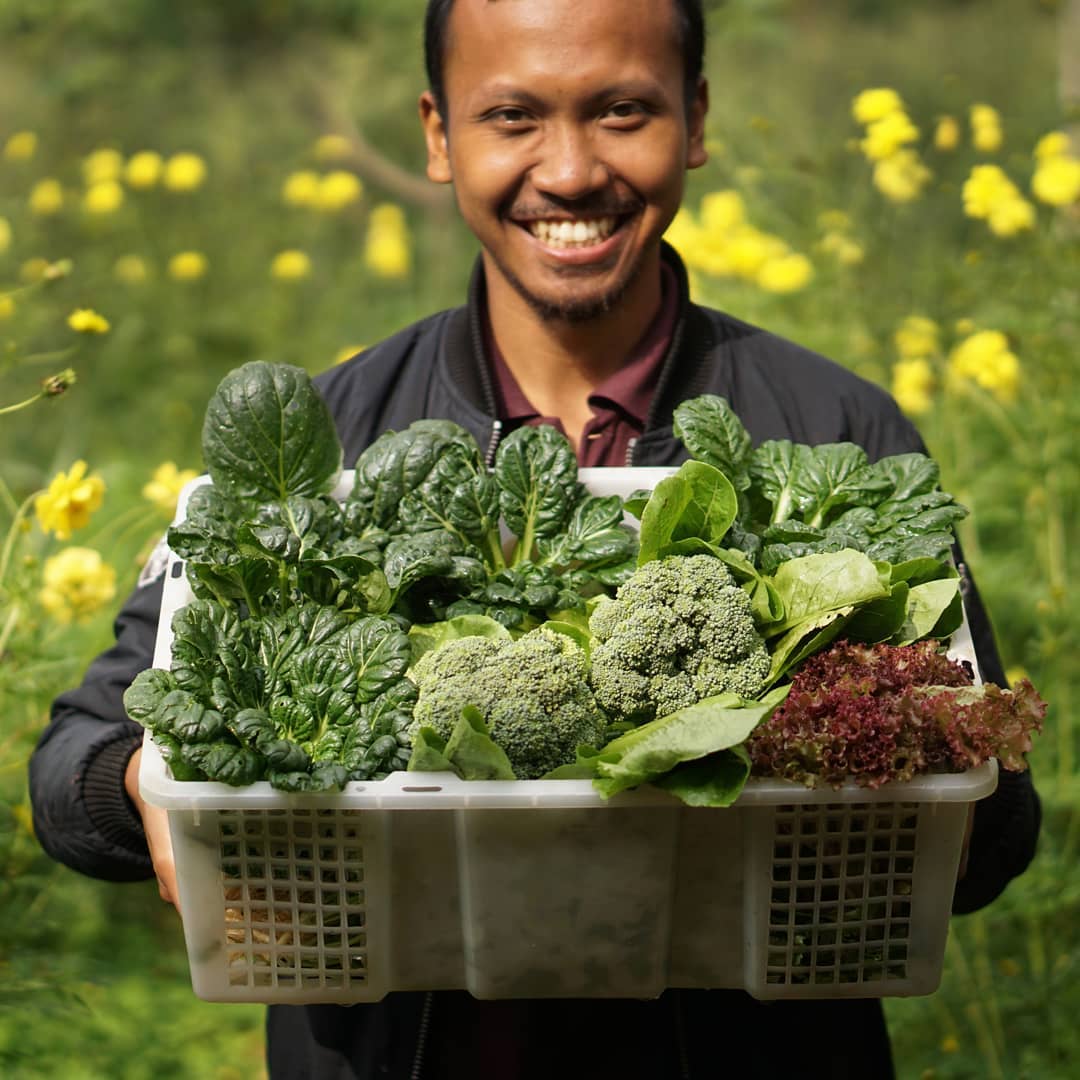
Sukasantai Farmstay in Sukamaju, Java
This blissful farm stay in Java is fairly new. Opened by a mother-daughter duo in 2019, the two of them decided to take their passion for health and agriculture to the next level. This family run enterprise employs locals and grows seasonal, regional produce. Your stay here will take you far away from the world of concrete and plastic and into a deep connection with the rhythms of nature and the slow, laidback life in a pastoral setting. 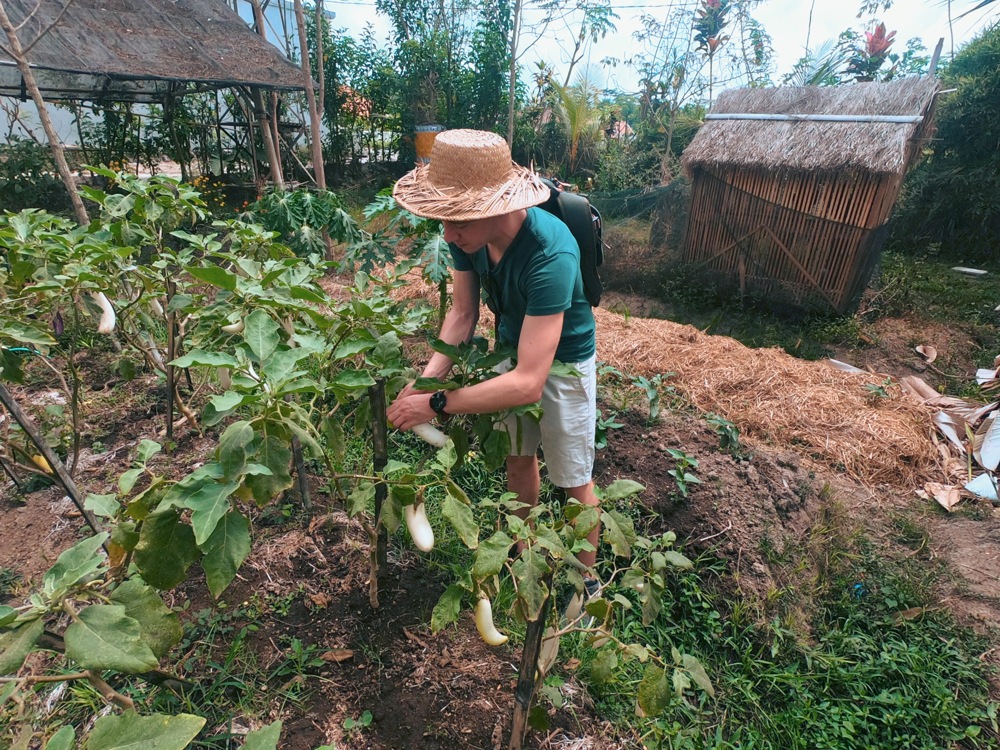
Mai Organic Farm in Pejeng, Bali
Kadek started Mai Organic with the aim to help local farmers whose livelihood was suffering from the incursions of modernity. After living in Denpasar, he returned to his hometown to breathe new life into the most time honoured profession of all! Because of the positive change Mai Organic brought to the community, he was asked to become the head of the Banjar just a few months after his return. Your experience here will allow you to learn about local herbs and vegetables and create some traditional Balinese meals. We’ve heard that their corn fritters are some of the best you’ll ever have!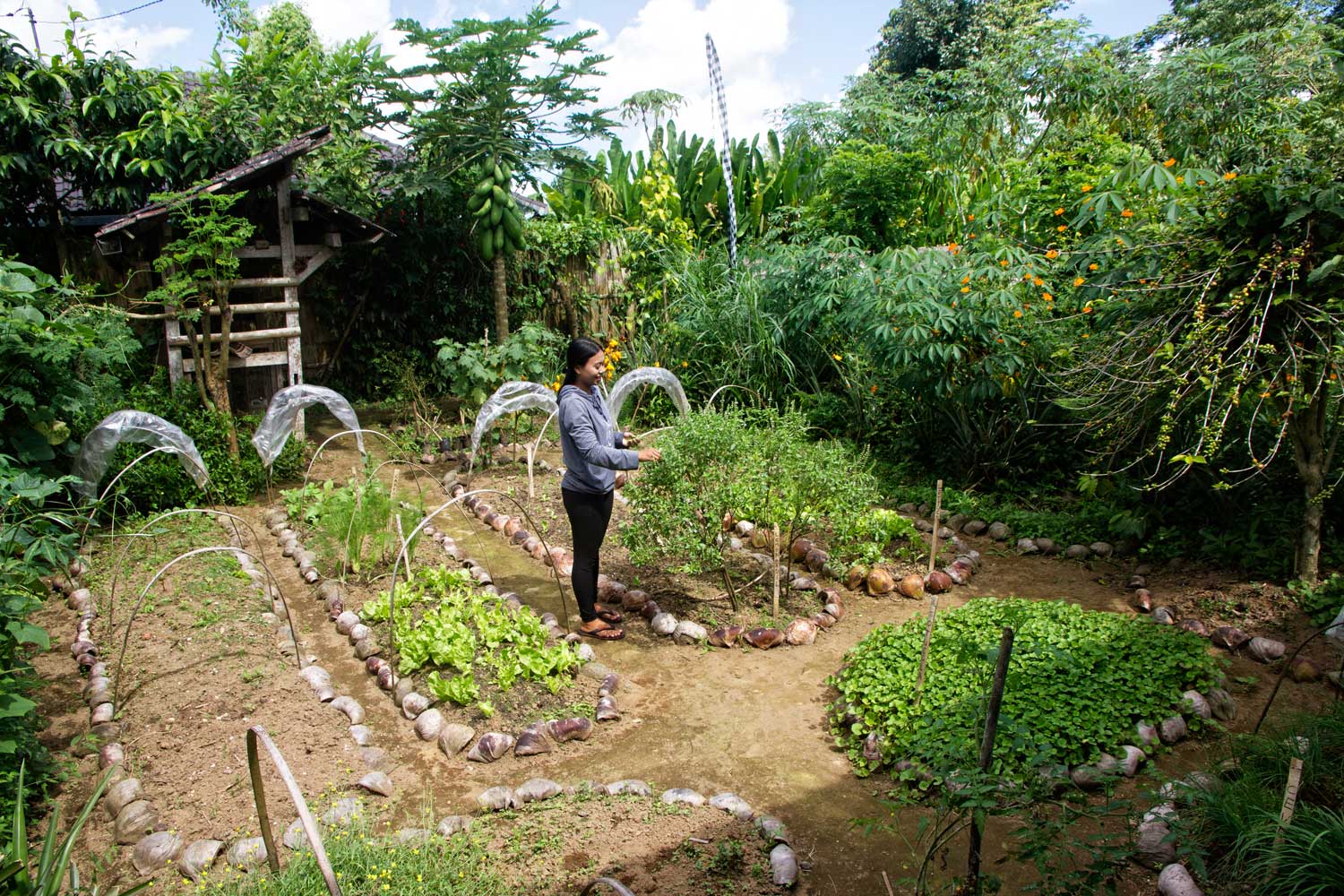
The Organic Farm Cafe Senganan, Bali
The Organic Farm Cafe is located in the geographical center of Bali. The farm functions according to Western organic farming principles and serves as an educational center for local farmers to learn about Western organics. You can enjoy their produce when you visit the cafe - a small and cozy place with a simple menu that offers stylish food, fresh from the garden! They organize a lovely tour through the area that will teach you about the local ecosystems and farmland. After breakfast at the cafe, your guide will take you to a traditional Balinese compound where you can learn about local fruit trees like durian, mango, avocado, palm sugar and coffee. Important questions will at last be answered, like how heavy is the basket of grass that farmers carry! End the tour with a delicious organic lunch and a small dip in the Air Panas hot springs. 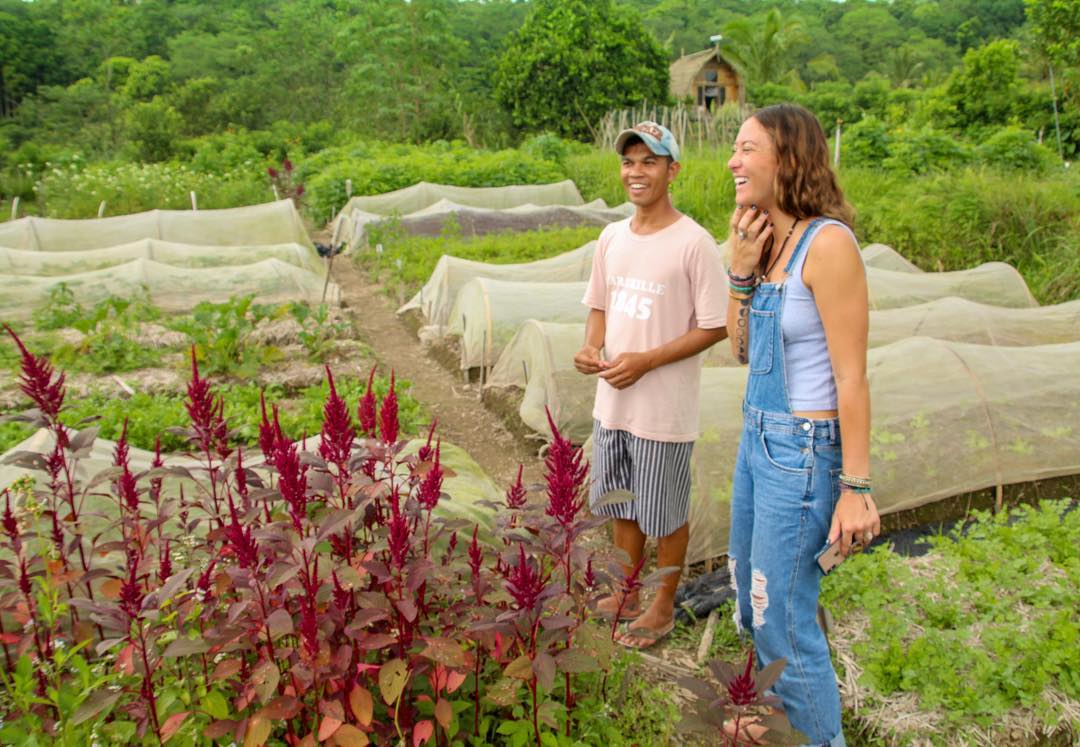
Lombok Organic Farm in Tetebatu, Lombok
At Lombok Organic Farm, they grow over 20 different types of crops without using any type of chemical fertilizers or pesticides. The farm produces fresh products weekly. They are constantly looking for new ways to grow different types of veggies and are challenging themselves to stay as sustainable as possible without losing quality. Your stay here will be unique, in that you can pick your own veggies and cook the freshest, healthiest meals yourself! For those interested in permaculture, staying here is a great way to connect more deeply with its practice. 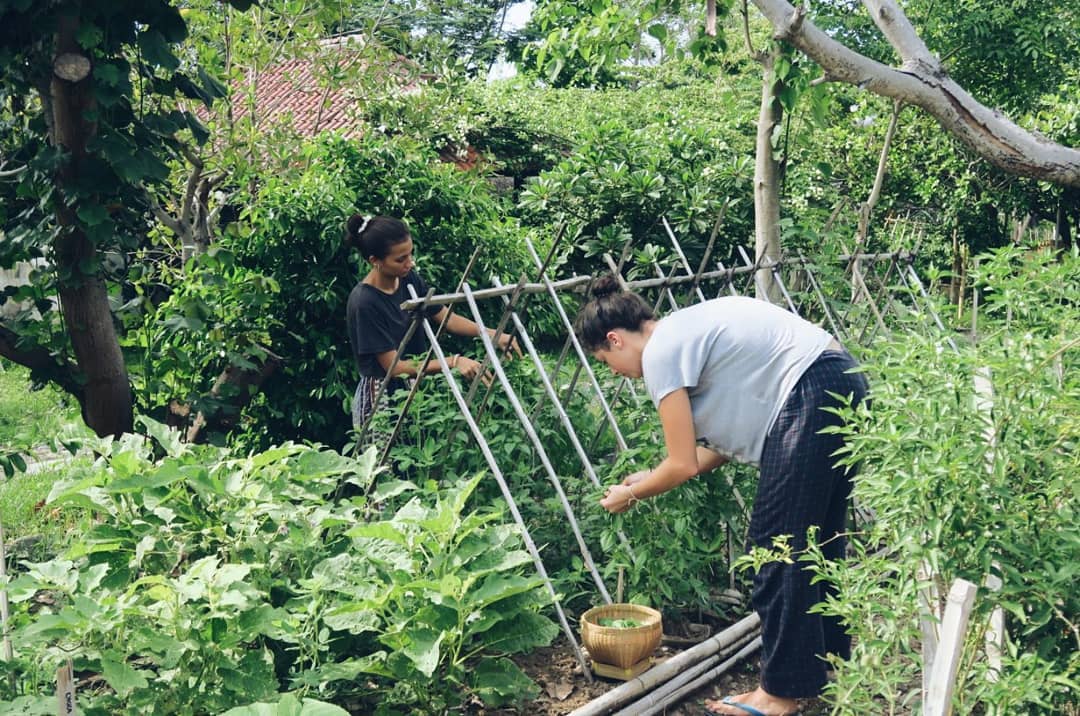
Saifana Organic Farm in Bayan, Lombok
In 2013, Anne-Sophie & Tikno decided to build a place where they could, every summer, be reunited with their 7 children who are studying in Europe. They started building bungalows for each child and at the same time, challenged themselves to grow organic vegetables in extremely rocky and dry soil. The mission was successful and today, the land is a sprawling visage of nature’s bounty! From their cashew orchard to their experimental fruit cultivation, there is much to learn and do on the farm. You can practice yoga and meditate in the tranquil shala, visit the many natural attractions of North Lombok or simply learn all you can about agriculture.
